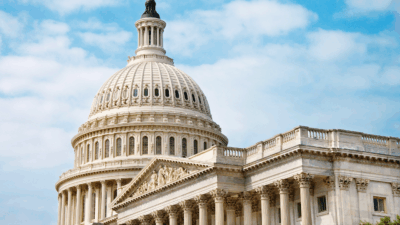
Sign up for smart news, insights, and analysis on the biggest financial stories of the day.
Can a financial institution be too small for regulations but also too big to fail? We may be about to find out.
American financial authorities are considering extending a lean version of rules designed for banking giants in the wake of the Great Recession to major regional banks, according to The Wall Street Journal. The hope is that it will fireproof the financial system. The fear is it will be a burden that ends up costing everyday customers.
The Cost of Doing Too Much Business
After the Great Recession, US and foreign regulators introduced tougher rules on major financial firms whose insolvency could threaten financial markets. Requirements included more detailed plans to unwind operations in the event of a crisis and greater minimum capital holdings.
Large regional banks were exempt from some of the rules, but went on to spend the next decade-plus experiencing rapid growth, namely via acquisitions. Last September, Minneapolis-based Bancorp agreed to acquire the retail banking business of MUFG Union Bank for $8 billion — Bancorp was already the fifth largest bank in the US by assets and the deal would see it take on an additional $130 billion. Data from the Federal Deposit Insurance Corporation shows financial institutions with at least $100 billion in assets, excluding the major “systemically important” banks like JP Morgan and Goldman, hold a combined $3.7 trillion in deposits, or 25% of those held in the entire American banking system. According to the WSJ’s sources, that’s why a panel of regulators appointed by the White House is considering recommending a shakeup:
- In the cards is a new requirement that major regional banks raise long-term debt to offset losses in the event of insolvency. Last week, US Federal Reserve chief Michael Barr hinted at regulators working together to increase requirements for regional banks’ so-called living wills, or their plans to wind down without seeking government bailouts.
- Industry groups argue regional banks that mostly fund operations through deposits — unlike the high-flying global investment titans of Wall Street — will be forced to issue public debt and increase consumer costs. The move could also backfire and cause more mergers: “More stringent standards often cause firms to think about whether they need to be significantly bigger to absorb the cost of compliance,” David Portilla, a lawyer at Cravath, Swaine and Moore, told the WSJ.
Turn Up the Temperature: Regional banks aren’t the only ones under the microscope: Barr said that, in addition to a “holistic” review of overall bank capital requirements, the Fed will assess lenders’ financial exposure to climate change risks in 2023. Extreme weather is making even bankers sweat.











